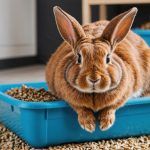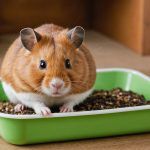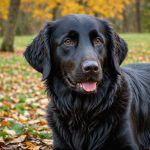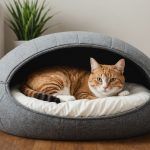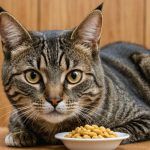Understanding Nutritional Needs for Senior Rottweilers
As Rottweilers age, their nutritional requirements evolve, necessitating adjustments to their diet. Understanding these changes is crucial for maintaining their health. Senior Rottweilers need a balanced diet rich in protein, fat, and fiber. These essential nutrients not only support their metabolism but also cater to other age-related needs.
Protein plays a vital role in maintaining muscle mass, which tends to decline as Rottweilers age. It’s important to provide high-quality sources of protein to ensure effective digestion and assimilation. Fat is another critical component, offering energy and supporting skin and coat health. However, too much fat can lead to weight gain, so the balance is key.
Also to discover : Helping your flat-coated retriever cope with the loss of a beloved companion: key tips and strategies for healing
Fiber aids in healthy digestion and helps prevent constipation, a common complaint among older dogs. An appropriate fiber intake keeps their digestive system functioning smoothly and efficiently.
Aging impacts a dog’s metabolism, often leading to reduced energy levels and changes in body condition. A tailored senior Rottweiler diet can alleviate age-associated challenges by carefully monitoring portion sizes and nutrient distribution. By considering these dietary needs, owners can enhance their senior Rottweiler’s quality of life, ensuring they remain active and healthy.
In the same genre : Enhance your bloodhound”s scent tracking mastery: improve performance in search and rescue missions!
Strategies for Portion Control
When it comes to portion control for your dog, precise serving sizes are crucial. Determining the right amount begins with considering your dog’s weight, age, and activity level. Label recommendations on dog food packs provide a basic guideline, yet each dog’s needs can vary. Consulting with a vet ensures the most accurate serving sizes for dogs, customised to individual health requirements.
Accurately measuring dog food is essential in managing dog weight effectively. Utilizing a standard measuring cup can help maintain consistency and avoid overfeeding. Some pet owners find that a digital kitchen scale offers a more precise measurement, ensuring each meal aligns with dietary goals.
The frequency of meals plays a significant role in managing a dog’s weight. While traditional feeding schedules suggest two meals per day, dividing the total daily amount into three or even four smaller meals can be beneficial. This approach not only helps in improving digestion but also maintains the feeling of satiety longer, which can prevent overeating.
By employing these strategies, you can ensure your dog’s diet supports their health and weight management goals, all while keeping them happy and energetic.
Recommended Food Types
Selecting the best dog food for senior Rottweilers is crucial as their nutritional needs evolve with age. Aging Rottweilers require specific diets to support their joint health, weight management, and energy levels. Different types of dog food are available, each offering unique benefits.
Types of Dog Food
-
Wet Food: Offers hydration and easier chewing, making it an excellent choice for seniors with dental issues.
-
Dry Food: Promotes dental health, but ensure it’s formulated for senior dogs to meet their nutritional needs.
-
Raw Diets: These can boost energy and coat health, but should be balanced and safe, ideally under a vet’s supervision.
Importance of Quality Ingredients
Selecting high-quality dog food is essential. Always read labels to avoid artificial additives and excessive fillers. Look for foods rich in omega-3 and antioxidants, supporting cognitive and joint health.
Recommended Brands
Certain reputable brands cater specifically to senior dog nutrition needs. Brands like Hill’s Science Diet and Royal Canin offer formulations designed to maintain vitality in older dogs, ensuring they receive the necessary nutrients for optimal health. When choosing food, consult your veterinarian to tailor specific dietary requirements for your senior Rottweiler.
Tips for Preventing Obesity
Keeping your Rottweiler at a healthy weight requires consistent weight management strategies. Start by avoiding overfeeding. Measure your dog’s meals carefully and consider their daily caloric needs to prevent excess weight gain. Avoid indulging in high-calorie treats, and instead, opt for healthy alternatives.
The significance of training and behavioral modification cannot be overstated. Training your dog not only mentally stimulates them, but it contributes to their physical well-being. Engaging in activities like fetch or agility exercises can burn calories and maintain weight.
Healthy dog habits are key. Regular exercise not only helps in maintaining a proper weight but also bolsters their overall health. Walks, playtime, and structured training sessions should be part of their routine.
Recognize the signs of potential weight-related issues, especially in senior Rottweilers. These signs include difficulty moving, heavy breathing, or noticeable fatigue. One effective step to take is consulting your veterinarian for tailored weight management plans.
Incorporating these practices into your Rottweiler’s lifestyle can help you prevent dog obesity, ensuring they lead a long, healthy, and happy life.
Practical Meal-Planning Advice
Creating a balanced diet for senior Rottweilers is crucial for maintaining their health and vitality. It’s essential to understand their unique dietary needs, which include a balance of proteins, fats, vitamins, and minerals. Begin by assessing the current health status of your Rottweiler and consult with your vet to tailor meals accordingly. This ensures that their nutritional needs are met, promoting longevity and well-being.
Transitioning between different diets should be approached with caution to avoid digestive issues. Gradual changes over a week are advisable; start by mixing small amounts of new food with the old and increase the ratio gradually. This method helps your pet adjust without causing stress to their digestive system.
Incorporating variety while maintaining a balanced diet is both possible and beneficial. Consider alternating between different protein sources like chicken, beef, or fish to keep meals interesting. Yet, ensure each new ingredient supports a balanced diet for senior Rottweilers and fits within their feeding routine. Use additional ingredients like vegetables or grains to provide necessary nutrients and enhance meal diversity, but always in amounts appropriate for their dietary needs.
Importance of Regular Exercise
Many pet owners wonder, “Why is regular exercise for senior dogs essential?” The straightforward answer is: it helps maintain a healthy weight and boosts overall health.
Engaging in consistent physical activity ensures that senior dogs like Rottweilers stay fit and avoid obesity, which can exacerbate joint problems and lead to other health issues. By incorporating regular walks, swimming, or gentle play sessions, owners can enhance their dogs’ cardiovascular health, strengthen their muscles, and improve their mobility.
Establishing a dog fitness routine tailored to the needs of a senior dog is crucial. For Rottweilers, balancing exercise with their energy levels is essential. Consider activities such as:
- Short, moderate-paced walks
- Gentle swimming sessions
- Controlled fetch games
When planning these activities, owners should pay attention to their dog’s signals. If fatigue or discomfort occurs, it’s time to pause. The key is consistency, not intensity. By scheduling daily exercise at the same time, dogs anticipate their fun physical sessions, fostering emotional well-being alongside physical health. Tailoring a plan that considers both health and joy is the recipe for longevity and improved quality of life.
Ingredient Analysis and Potential Health Risks
Understanding the right dog food ingredients is crucial in ensuring your senior Rottweiler’s health and longevity. Unfortunately, some common ingredients in dog food can pose potential health risks. Make sure to avoid these harmful additives:
- Artificial preservatives like BHA and BHT, which can contribute to cellular damage.
- Corn syrup and sugar, leading to unnecessary weight gain and possible diabetes.
- Fillers such as corn gluten meal, which lack nutritional value and can contribute to obesity.
Speaking of obesity, one pertinent concern is the health risks associated with obesity in senior Rottweilers. Excessive weight can lead to joint and mobility issues, heart disease, and shortened lifespan. To combat this, it’s essential to choose foods that promote a healthy weight.
Monitoring your Rottweiler’s health through regular veterinary check-ups and screenings is also key. These appointments can help in diagnosing problems early, ensuring your furry friend maintains a balanced, active lifestyle. Regular vet visits offer an opportunity to adjust dietary needs based on weight and overall health, providing a safeguard against the detrimental consequences of obesity.





